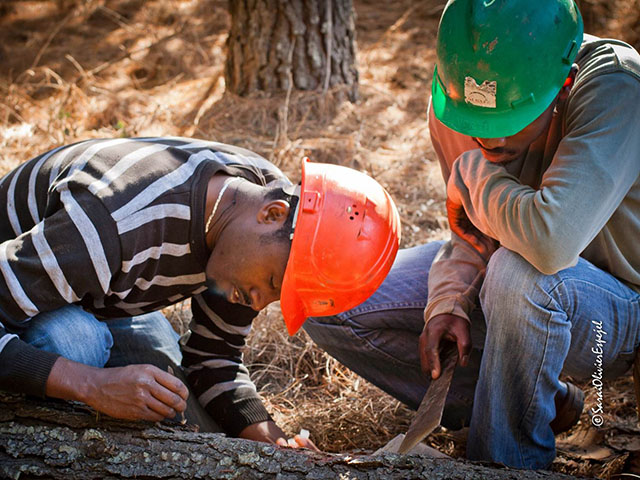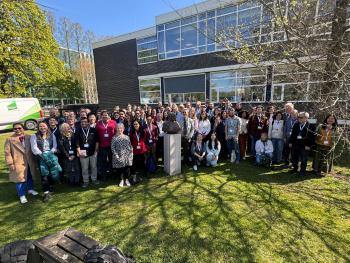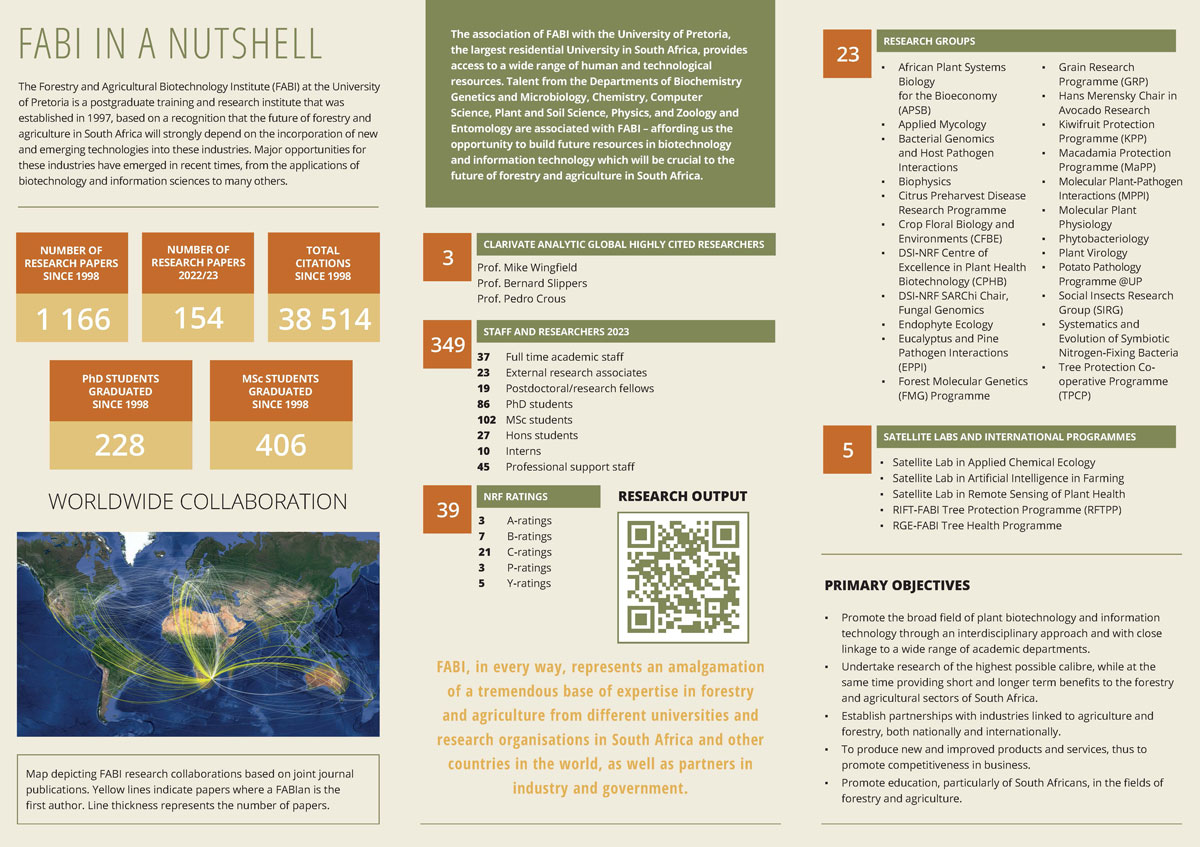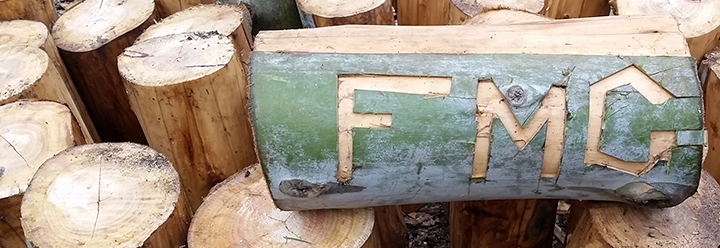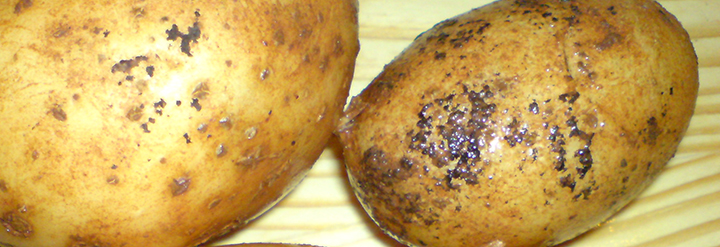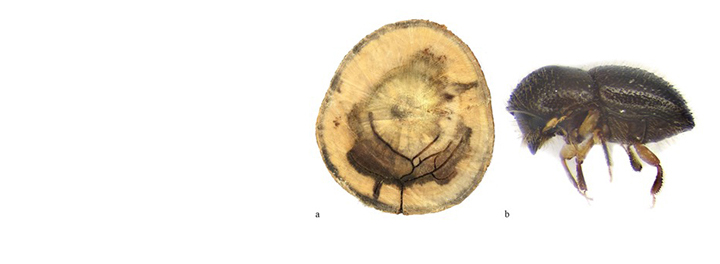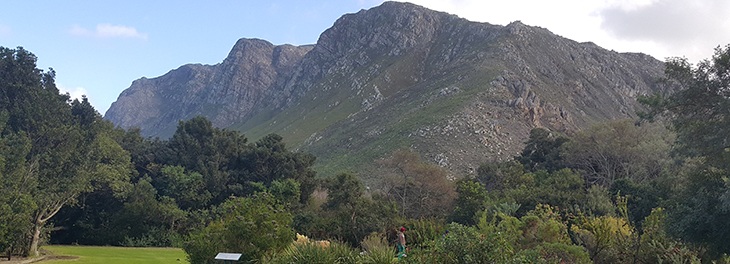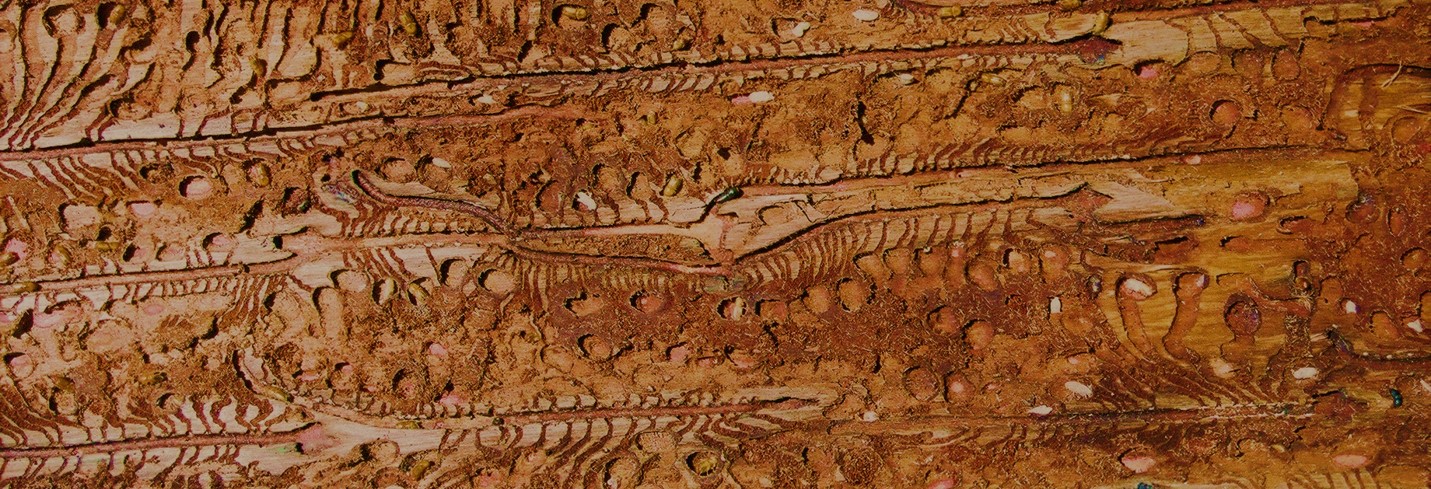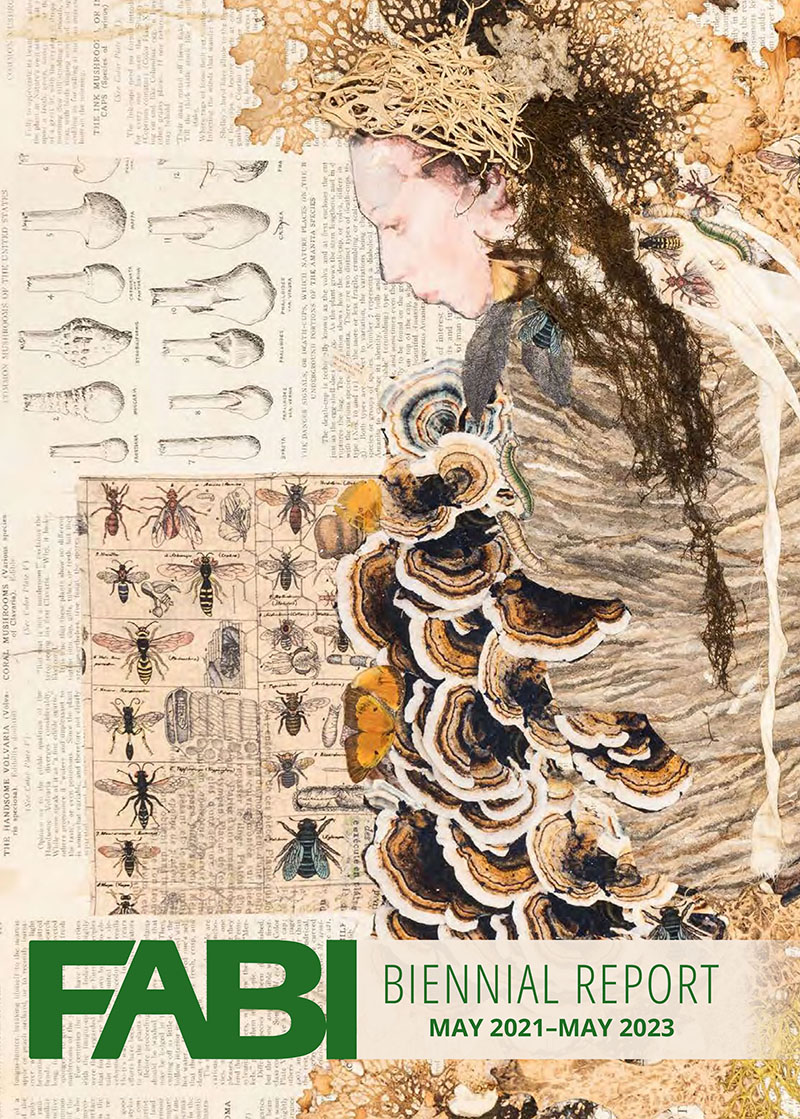FABI researchers expend a lot of effort to rewrite selected papers into a popular format for general consumption by the public. This effort is justified by the significant amount of funding provided by the South African Government, which originates from general taxation of the South African public, as well as a recognition of the public interest in science.
2011
- UP scientists unravel hidden plant pathogenic fungi
Albe van der Merwe
2010
- Genome sequence of Pantoea ananatis – a Eucalyptus pathogen
Pieter de Maayer - "Gene discovery" in cowpea, a drought tolerant African plant
Dave Berger, Inge Gazendam, Nanette Coetzer
2009
The FABI biennal reports are available as downloadable PDF files. You will need a PDF reader programme such as Adobe Reader in order to read the reports.
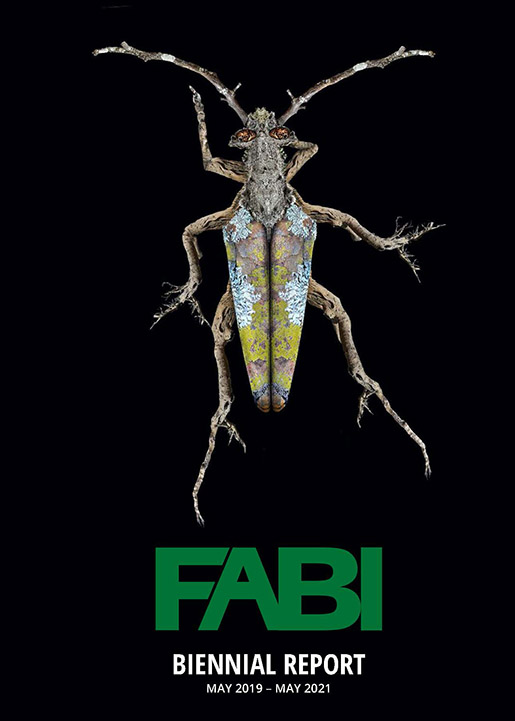
FABI Biennial Report 2019/2021
[12.7 MB]
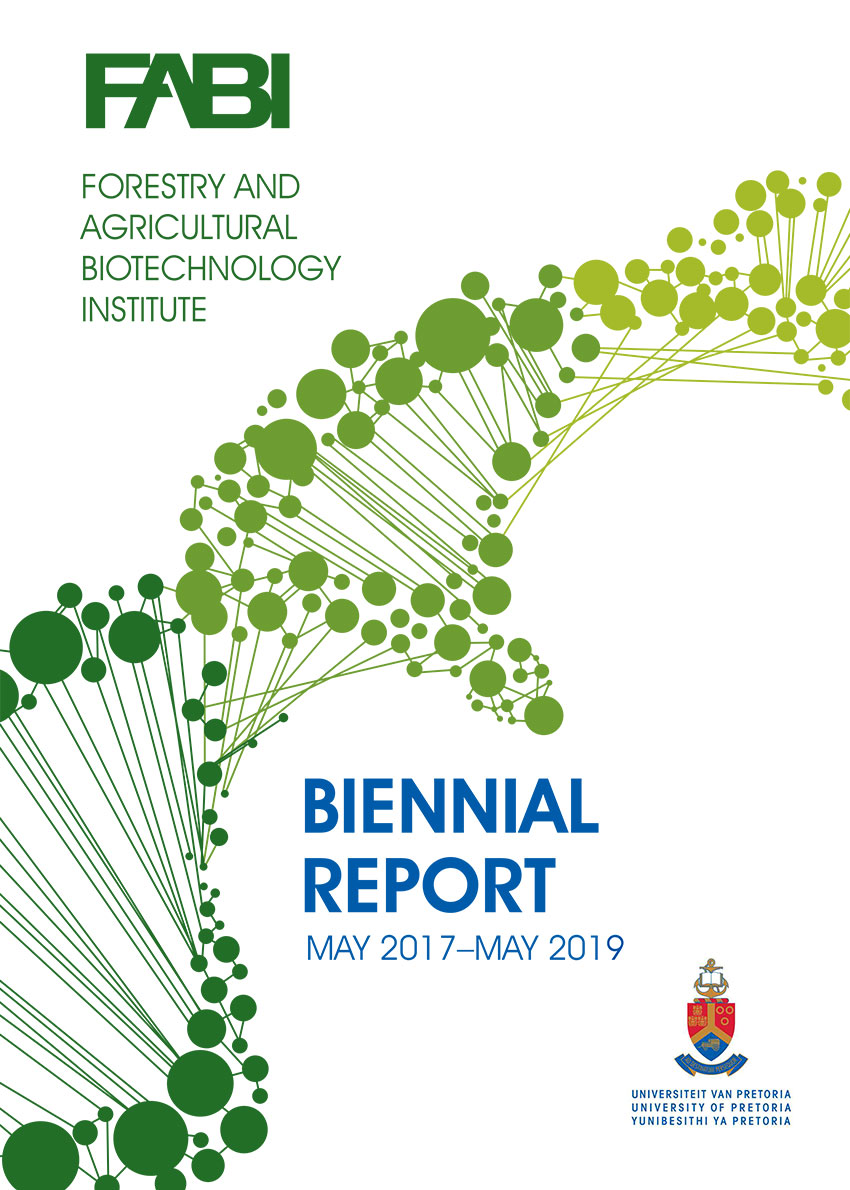
FABI Biennial Report 2017/2019
[9.3 MB]
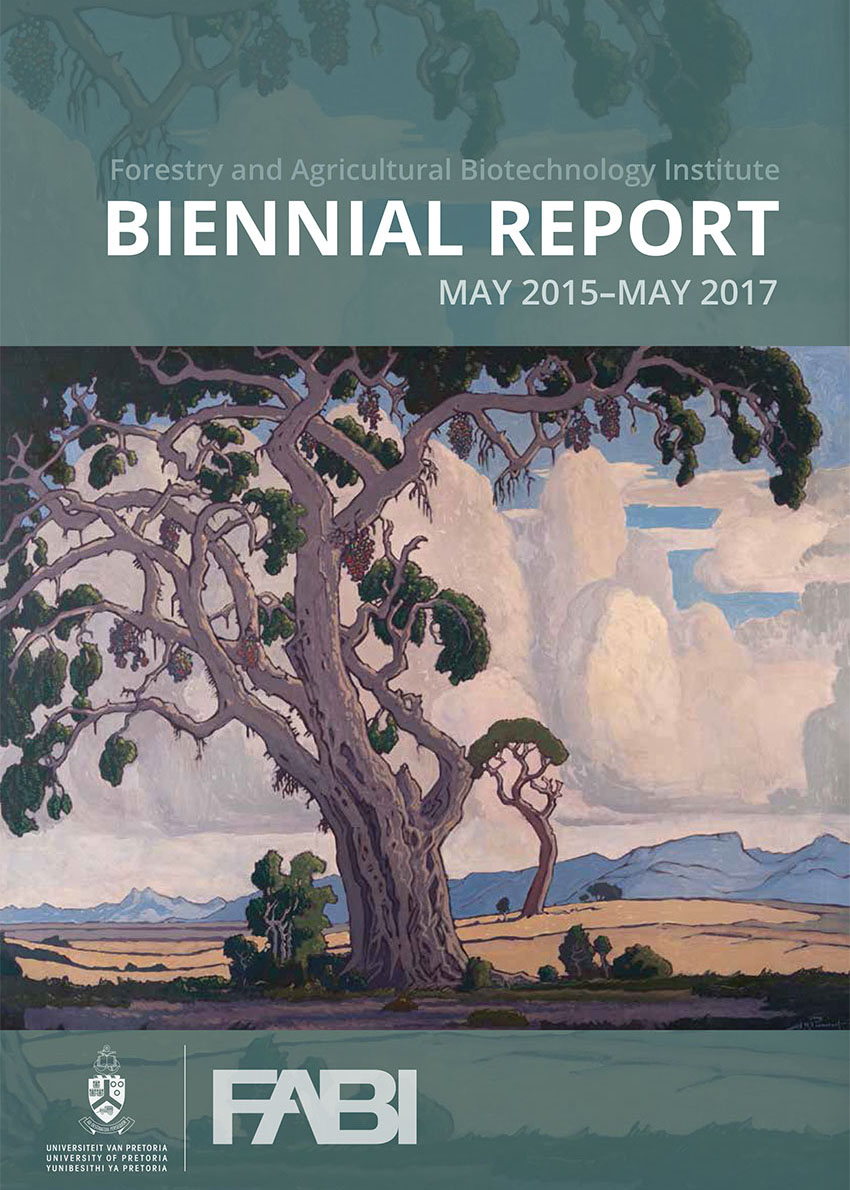
FABI Biennial Report 2015/2017
[4.3 MB]
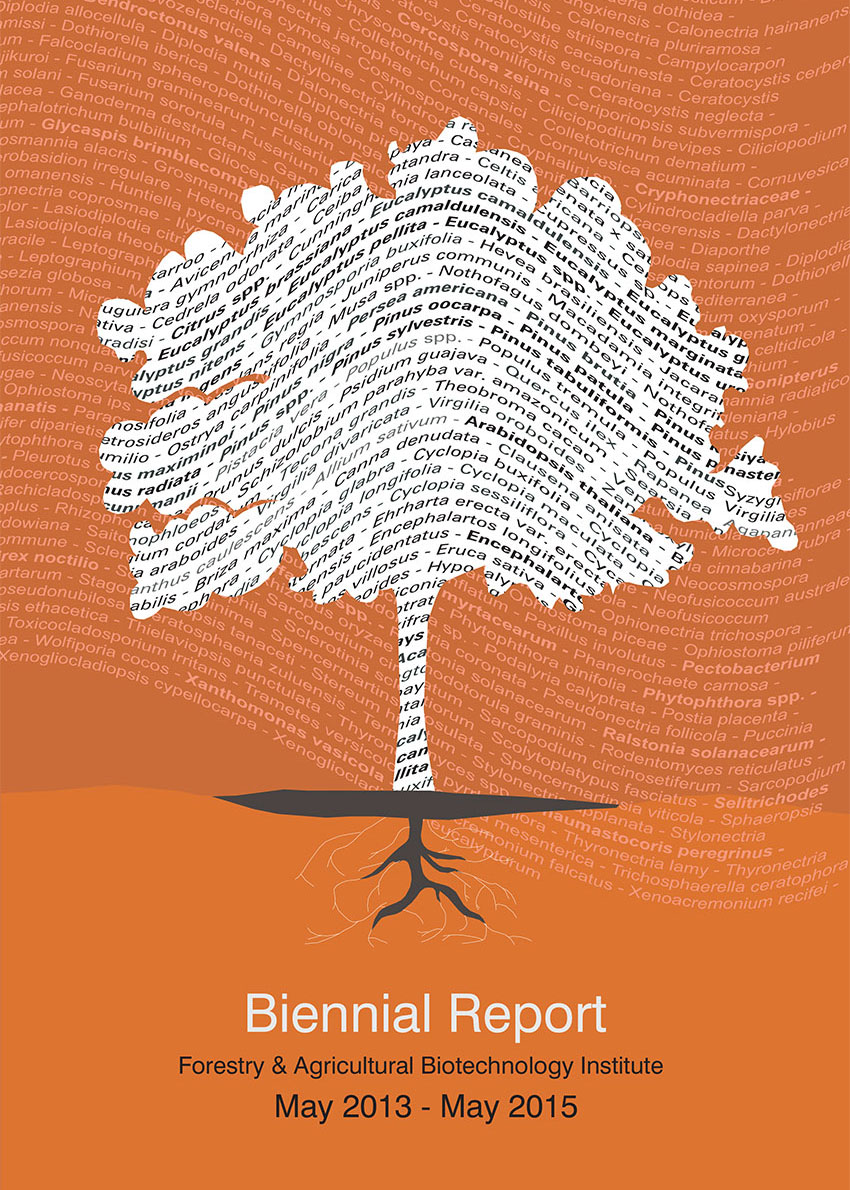
FABI Biennial Report 2013/2015
[31.3 MB]
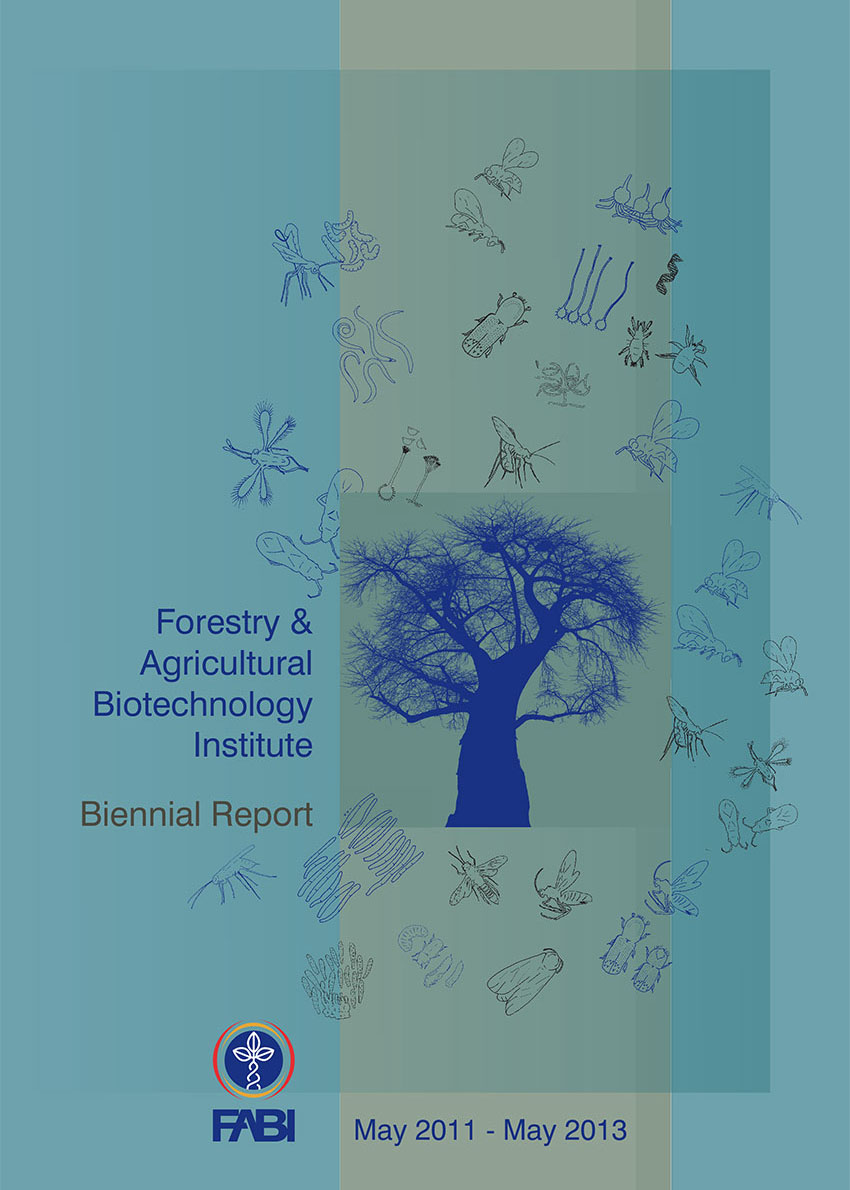
FABI Biennial Report 2011/2013
[11.3 MB]
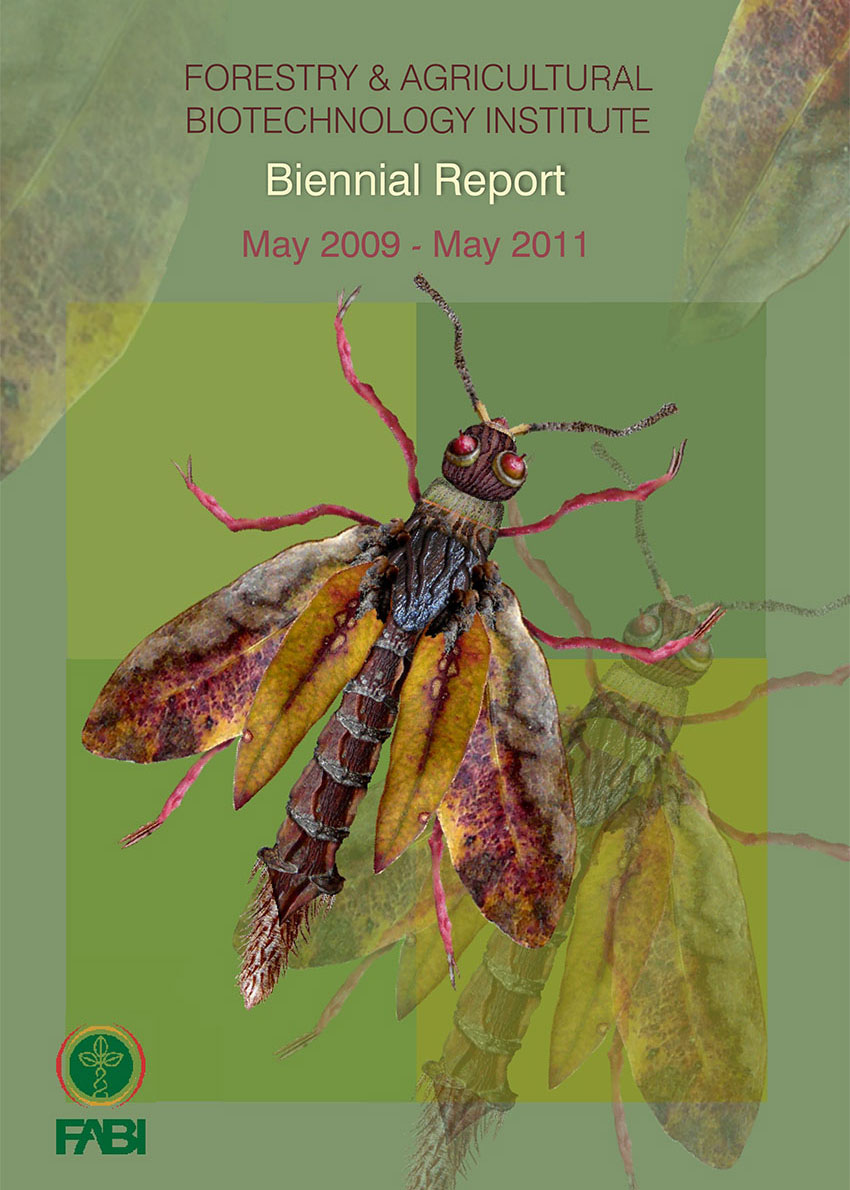
FABI Biennial Report 2009/2010
[6.72 MB]
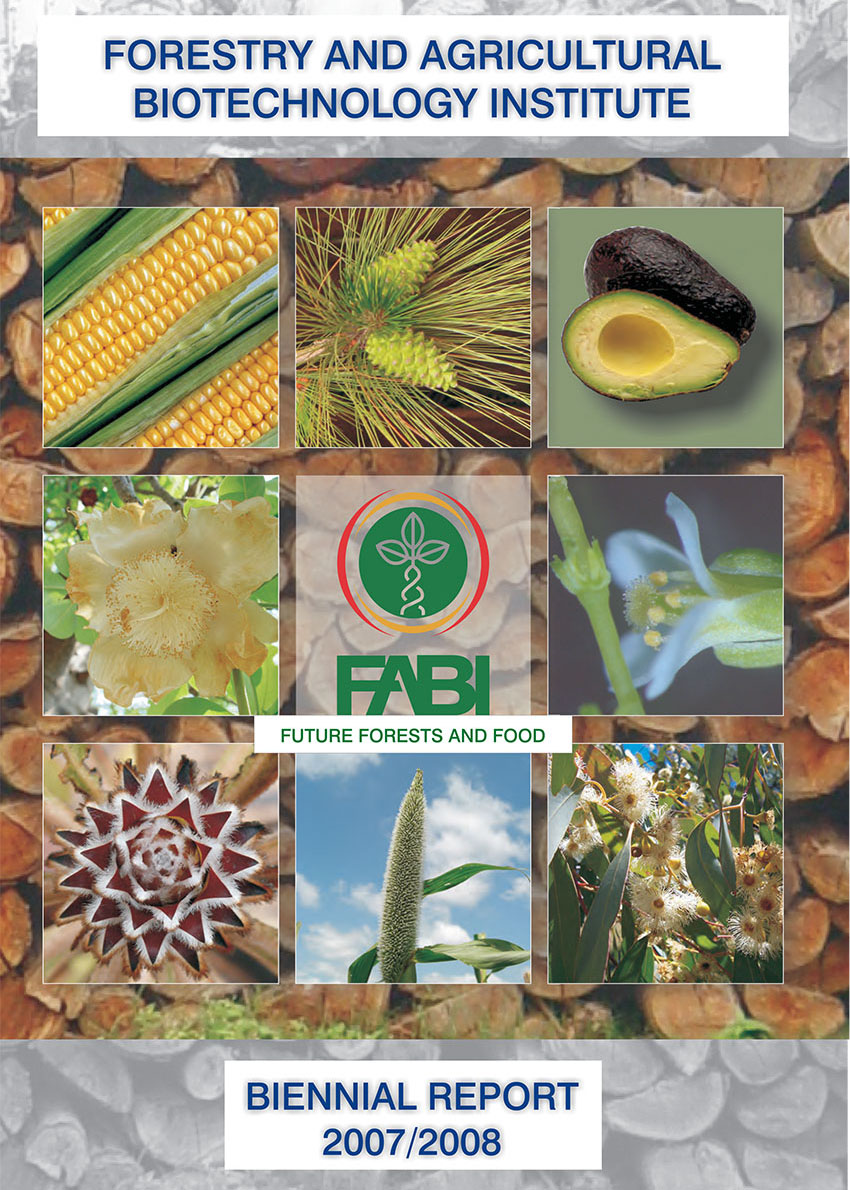
FABI Biennial Report 2007/2008
[15.4 MB]
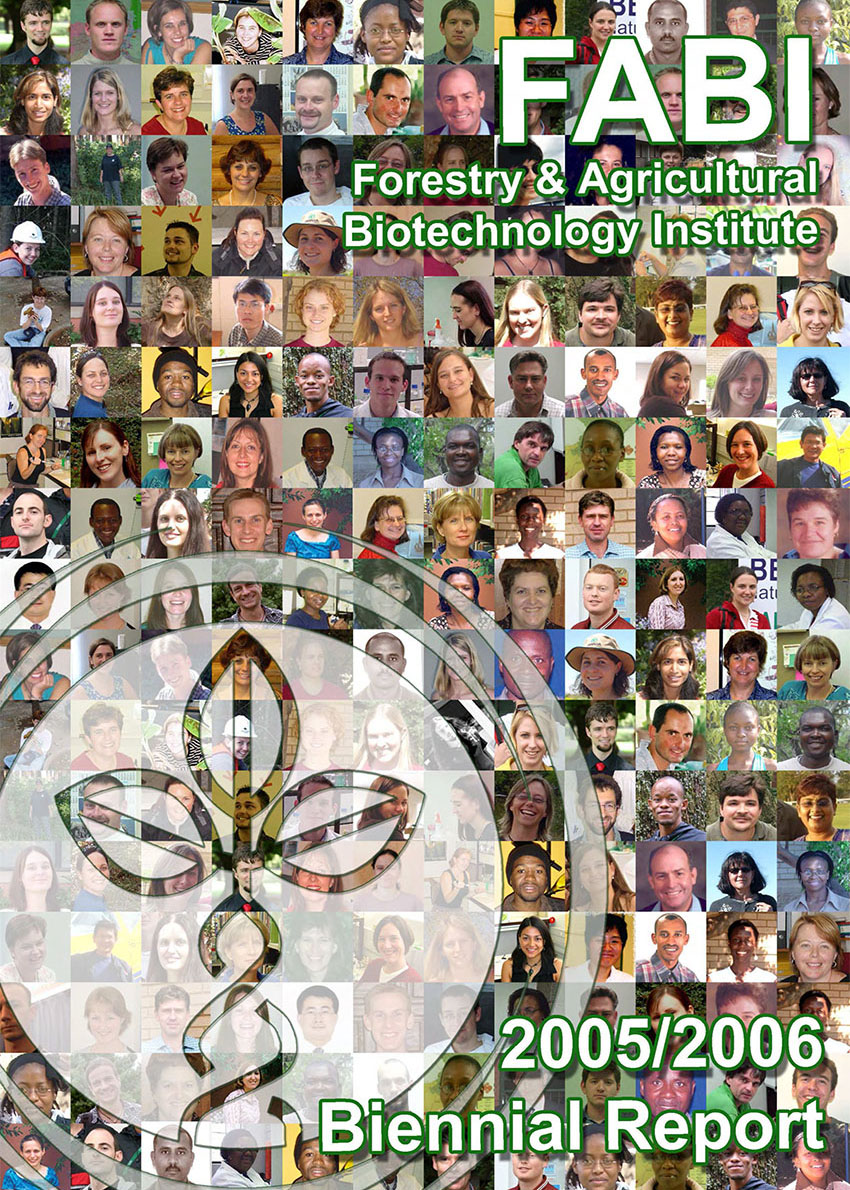
FABI Biennial Report 2005/2006
[8.85 MB]
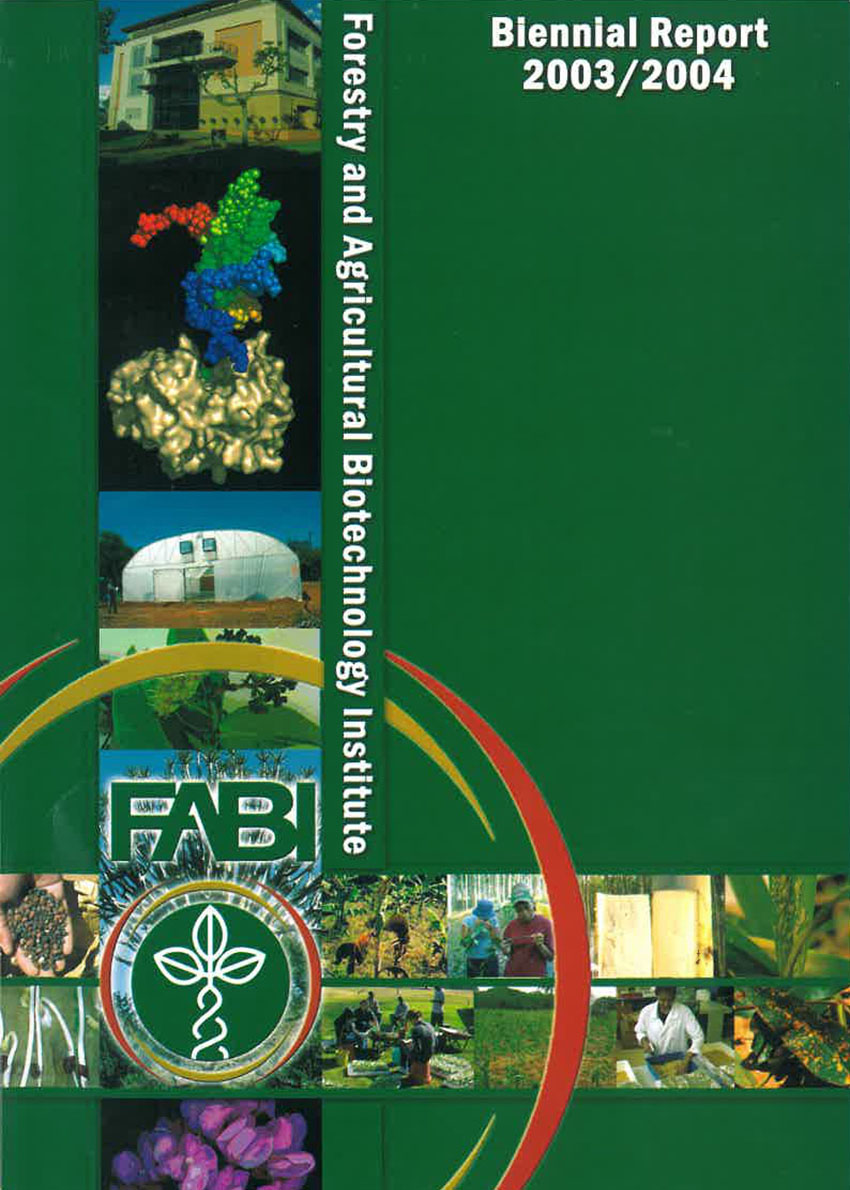
FABI Biennial Report 2003/2004
[4.6 MB]
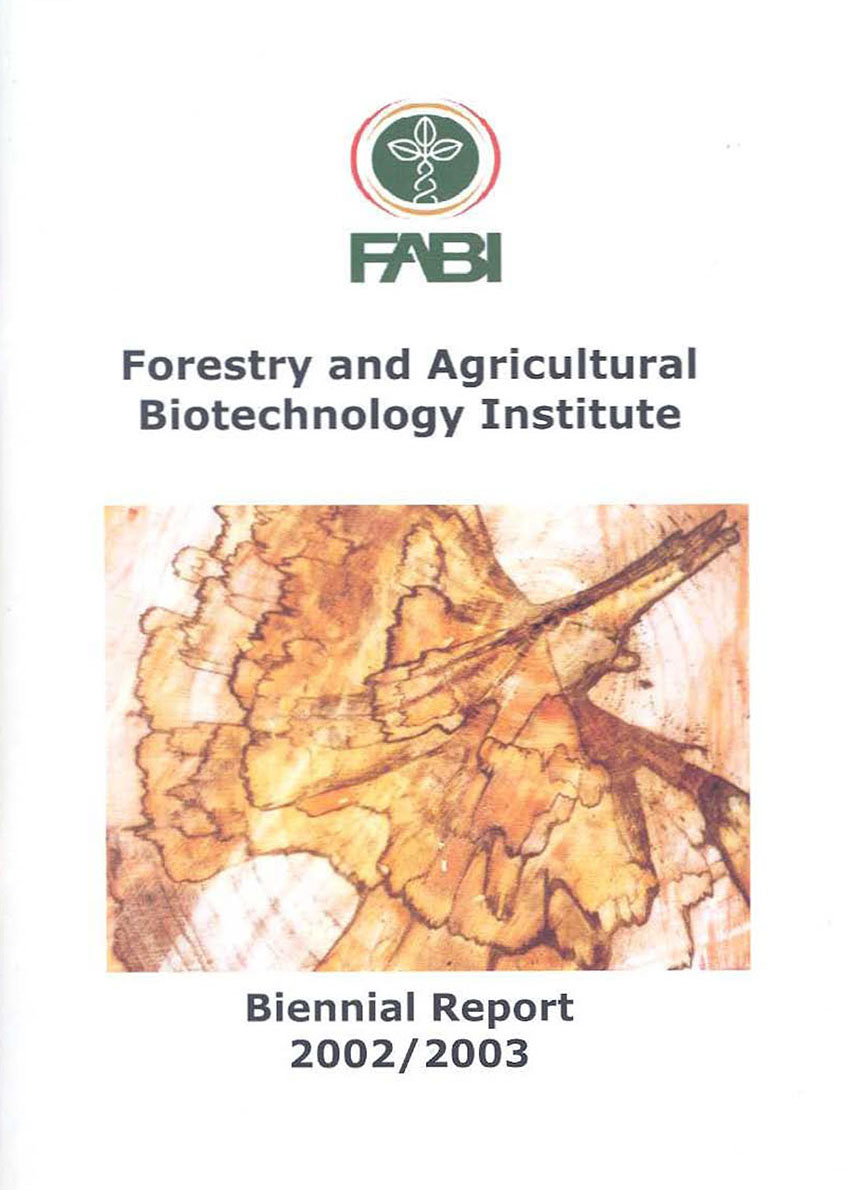
FABI Biennial Report 2002/2003
[11.3 MB]
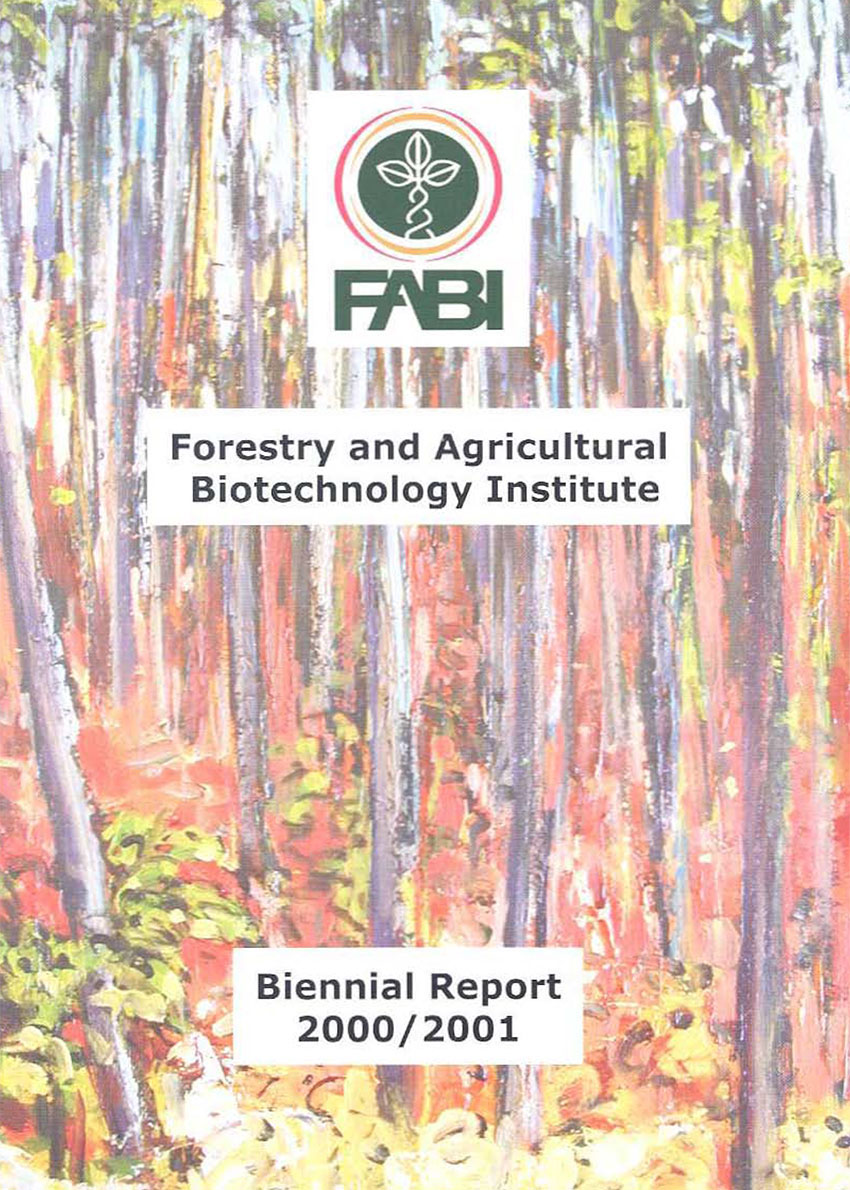
FABI Biennial Report 2000/2001
[7.63 MB]
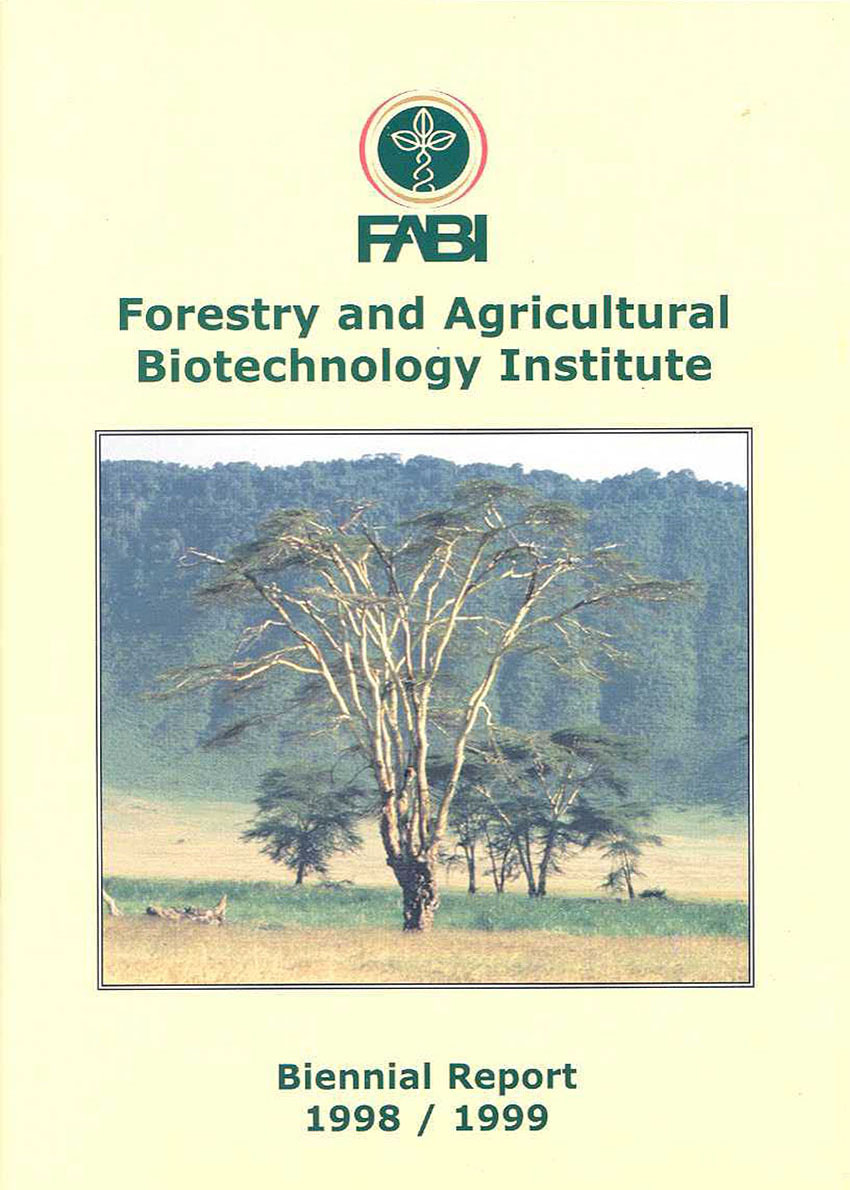
FABI Biennial Report 1998/1999
[5.13 MB]
| Telephone | +27 (12) 420-3939 or 5478 |
| This email address is being protected from spambots. You need JavaScript enabled to view it. | |
Forestry and Agricultural Biotechnology Institute (FABI)
University of Pretoria
Private bag X20
Hatfield
0028
South Africa
Forestry and Agricultural Biotechnology Institute (FABI)
University of Pretoria
Lunnon Street Entrance
Hatfield
0083
Pretoria
South Africa
FABI Main Buildings
FABI Biocontrol Centre and Nursery
FABI, the Forestry and Agricultural Biotechnology Institute, at the University of Pretoria, is a post-graduate research institute that was established in 1997, based on a recognition that the future of forestry and agriculture in South Africa will strongly depend on the incorporation of new and emerging technologies into these industries. Major opportunities for these industries have emerged in recent times, from the applications of biotechnology and bioinformatics, amongst many others. FABI scientists undertake goal-directed research, in partnership with major players in the forestry and agricultural sectors in South Africa and in so doing, promote both human capital and industrial development in the country.
